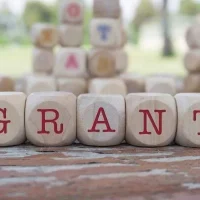Deadline: 15-Mar-22
The European Commission (EC) has announced a call for proposals for the European Research Area (ERA) Chairs.
ERA Chair holders should be excellent researchers and/or innovators in the chosen field of research. They should establish a research team fully integrated in the coordinator’s institution to significantly improve its research performance in the scientific domain of choice and to be more successful in obtaining competitive funding. The selection of personnel to the research team is to be conducted by an international recruitment panel leaded by the ERA Chair and outlined in proposals. The ERA Chair holder should also have a position within the organisation/university, allowing her/him to make appropriate resource allocation decisions, supervise team members and freely apply for research funding. When this is compatible with the nature of the coordinator, he/she is expected to take on some teaching duties.
To allow for the determination of the commitment of the future ERA Chair holder and of the coordinator institution, proposals shall include:
- a letter signed by the prospective ERA Chair holder expressing his/her commitment to the proposal and willingness to take on the underlying tasks and obligations;
- a letter from the head of the coordinator institution committing to the proposal and stating that the ERA Chair holder is to receive adequate support to take on her/his tasks and duties including, for example, access to research facilities, supervision of researchers, teaching duties (if any) and capacity to apply freely to national and international funding.
The ERA Chair holders might move on a temporary or permanent basis to the coordinator’s premises. To this end, secondments or any other legal arrangements (e.g., leave without pay, sabbatical licences) are possible including part-time work and multiple stays. All contractual arrangements and the timeline of ERA Chairs stays at the coordinator should be indicated in the proposal as well as the salary, travel and daily allowances and/or other perks to be offered.
Funding Information
The check will normally be done for the coordinator if the requested grant amount is equal to or greater than EUR 500 000, except for:
- public bodies (entities established as a public body under national law, including local, regional or national authorities) or international organisations; and
- cases where the individual requested grant amount is not more than EUR 60 000 (lowvalue grant).
Expected Outcomes
Projects are expected to contribute to some of the following outcomes:
- At system level:
- Increase in number of R&I talents moving to host organisations in Widening countries
- Increase in international, interdisciplinary and intersectoral mobility of researchers and innovators
- Encouraging institutional reforms in research institutions and in the national R&I system in widening countries
- Strengthening of Widening countries’ human capital base in R&I with more entrepreneurial and better trained researchers and innovators
- Better communication of R&I results to society
- Better quality and capacity of research and innovation contributing to Europe’s competitiveness and growth
- Improved excellence capacity and resources in Widening countries and close the still apparent research and innovation gap within Europe
- At organisation level:
- Research excellence of the institution in the specific fields covered by the ERA Chair holder.
- Increased attractiveness of the institution for internationally excellent and mobile researchers.
- Creation of a permanent and excellent research group in the chosen scientific field with a spill-over effect on the institution;
- Improved capability to succeed in competitive research funding in the EU and globally, at least, in the fields of choice;
- Greater contribution to the knowledge-based economy and society
Eligibility Criteria
To be eligible for funding, applicants must be established in one of the eligible countries, i.e.:
- the Member States of the European Union, including their outermost regions;
- the Overseas Countries and Territories (OCTs) linked to the Member States;
- eligible non-EU countries:
- countries associated to Horizon Europe;
- low- and middle-income countries.
For more information, visit https://bit.ly/3mhEpVp





![Call for Applications: “Voices in Motion” Program [Sri Lanka] - fundsforNGOs Call for Applications: “Voices in Motion” Program [Sri Lanka]](https://www2.fundsforngos.org/wp-content/uploads/2023/04/dance-200x200.jpg)



































